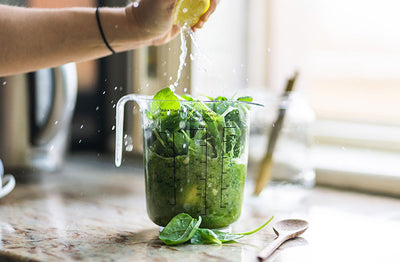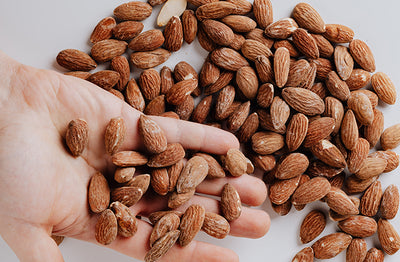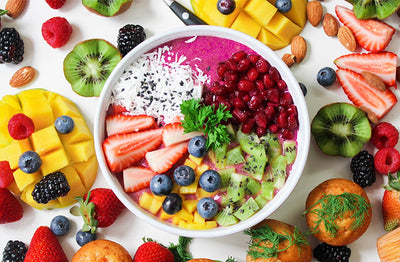Few flavours have the mental addiction as sweetness does. Even the word “sweet” can be used to describe a kind person (“He bought me flowers, he’s so sweet!”), something nice (“Sweet sound system man, I can hear it from the next post code!”) or just a general enthusiastic exclamation (“Dude, you just won a free box of
quest bars!” “
SAH-WEEET!”)
But it’s the way our brain lights up when we put something sweet on our tongue that can get you to close your eyes to savour it. Unfortunately, it can also come with a LOT of extra kilojoules, so getting a replacement sweetener for sugar can be a great way to keep your sweet tooth from biting you in the bum.
What is it?
The most common natural sweetener is sugar. It can come in processed form (white sugar) or a less processed form (brown or dark sugar). Alternative natural sweeteners are natural products that taste sweet. There are loads of them, with Palm sugar, honey, maple syrup and now Stevia being the most popular.
They’re all found naturally, and can be used instead of refined sugar as a sweetener.
How do alternative natural sweeteners work?
Some people prefer the taste, or to eat something a bit less refined than white table sugar. Most people though, like sweeteners that won’t add to their waistline like sugar can.
Stevia is getting a lot of attention recently, because it tastes sweet, but your body doesn’t absorb the same amount of kilojoules that it would from the same amount of sugar. It’s made from refining the leaves of the stevia plant into a fine powder that you can use just like regular sugar.
In essence, they stimulate the tastebuds on your tongue that detect sweetness. Because we need energy to survive, and sweet food tend to be high in energy, it can be quite pleasurable to consume sweet food. Unfortunately, we've sort of cheated the system by making sweet food a lot easier to get, without the added nutrients that you would find in naturally sweet treats, like fruit or berries, which are much better for you than doughnuts or cakes.
Why would I want it?
Cutting down on sweet foods can be very difficult, especially if you’re trying to break the habits of a lifetime. Being able to have a little bit of sweet food can help ease you into your new routine. Natural sweeteners should still be consumed in moderation though.
Who is it best for?
If you want the sweet taste without the need for refined sugar, these are fantastic options. Honey, maple syrup and palm sugar all have antioxidants when eaten as close to natural as possible. It doesn’t mean you can smash down a whole chocolate cake just because you used a bit of honey in it, but you can try adding a small dollop of honey to your tea instead of your regular three teaspoons of sugar. Probably best for those who munch on
protein bars instead of chocolates bars.
What are the side effects?
Natural sweeteners aren’t made with rainbows and unicorn tears though. Keep in mind that there are still quite a lot of kilojoules in them. Honey and maple syrup are very dense in energy, and only just slightly better for you than refined sugar.
Stevia has become massively popular recently, and you can even grow your own to make a low kilojoule natural sweetener, but the stuff you buy in the health food shop might have been mixed with preservatives or fillers.
Make sure you read the label before you take it home. Remember, cow poop is natural too, doesn’t mean eating it is a good idea.

Is it good for women too?
Alternative sweeteners are used by lots of women. It can be a great way to reduce the amount of kilojoules you’re getting without missing out on those special little cheat snacks that you love. Especially when you are on a
low carb diet.Just keep in mind that you still need to get proper nutrients in your food.
Conclusion:
Alternative sweeteners are being used more and more in everyday food, and they can really help you shift your eating plan if you’re trying to wean yourself off a bit of a chocolate addiction, but remember that they won’t do the work for you. Eat clean, natural food where possible, and keep your treats as healthy as you're comfortable with.
Read More:
















